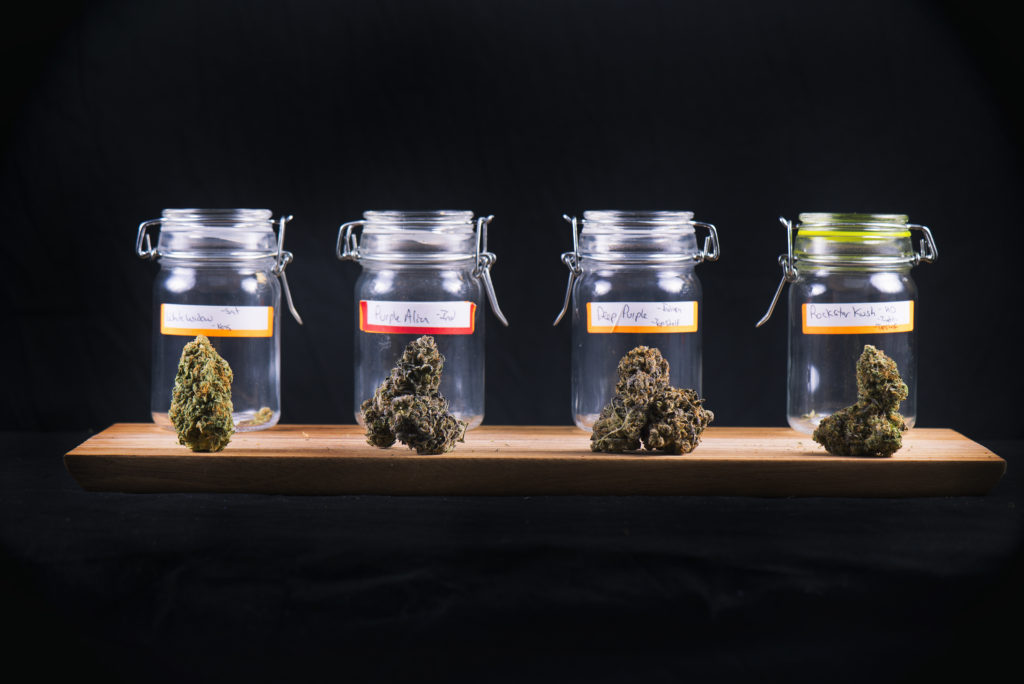“Women are in every sector of this industry, and I think there are a couple reasons for that. We’re the nurturers and healers of our families. When someone in our family or friend group is not well, we take the role of caregiver. Some of this has been imposed on us by society, but that means we have a comfort level with that, so we’re the early adopters who are seeing cannabis as medicine. I really think this was the springboard that launched it. It’s a unique and beautiful thing to see nurturers and healthcare providers get in early in this industry. Many of us feel like we’re reaching a point of critical mass in the workplace. The timing is just right. The combination of these things makes it ideal for women to step to the forefront and be highly active and entrepreneurial.”

In 2008, Lisa Tollner co-founded Sensi Products, a popular line of cannabis edibles. Their goal was to create medical marijuana products for families dealing with various health issues, who are considering cannabis as a treatment method for pain or other chronic symptoms. Their most popular products are Sensi Chews, a line of chewable supplements designed to address different health needs, from insomnia to pain relief. They even have a line of Amore “pleasure” edibles, perfect for Valentine’s Day.

“We have a customer service number on our site. We’ve gotten a lot of calls ever since California’s new laws kicked in, but we usually get a couple calls a day. I would venture to say that 75% of the calls we receive are from women. They’re either doing research for themselves, they want to know more about cannabis and its effect on various conditions, or they’re doing research for loved ones. They’re the ones out there saying ‘my husband, my boyfriend, my son or daughter is suffering from an illness, we’ve tried everything. Will this help us?’ Women are blazing this trail after watching the people they care about suffer needlessly. They’re ready to roll up their sleeves and do their due diligence.”

Last year, Sensi Products teamed up with the Institute of Research on Cannabinoids (IROC) for a 1,400 person study to examine the role of cannabis as a treatment for sleep disorders, anxiety, PTSD, and pain. This will be the largest peer-reviewed study of its kind when the findings are released this spring.

“When we teamed up for this study, the goal was to focus on 4 primary issues – chronic pain, sleep and insomnia, anxiety, and PTSD. The survey was so extensive so we could yield more information and allow people to discuss other issues like fibromyalgia, gastrointestinal issues, and other pain-specific illnesses. From that, we’d relate it to the 4 primary objectives.
We received 1,400 completed surveys. 300 participants came back to complete it a second time so we could collect some time-related data, but it’s hard to get people to come back after the first 30-minute survey. We had 30-50 people come in for a third round. We were seeking time-stamped data, and we did get a little, but having 1,400 completed surveys is a significant sample. The industry does not yet have access to information of this kind.”

“We’re hoping for some insight and knowledge we haven’t seen in the past due to federal restrictions. Most big research firms prefer a hands-off approach, so most research is done outside the United States. When patients inquire about whether a product will help them, we often find ourselves referencing studies that are 10 or more years old. Our study with IROC is not a clinical trial, but it’s still a complete survey with a large sample and peer-reviewed data. It’s important information and we’re excited to share it with the industry.
The timing for release could be just right with Jeff Sessions and the Department of Justice doing everything they can to slow the industry down. A study like this could take some of the wind out of their sails, especially when they try to claim cannabis has no medical value. It’s hard to ignore peer-reviewed studies from medical professionals.”

“In my view, the pharmaceutical companies are worse than the government. They’ll take the plant into their lab and strip it of anything natural and valuable. I have a very strong belief that the reason this humble plant works so well for the human condition is that it’s as close to plant life as you can get. When you come to extracts or butter or even vape cartridges, it’s very close to its authentic, original, in-the-ground form. It’s been engineered to work effectively with human anatomy and the endocannabinoid system. My fear is that when big pharma gets involved, they’ll screw it up for small companies who are doing things right, taking it slow, who don’t have deep pockets but want to honor the plant in its truest form.”

“I’m hoping Sensi Products will be able to continue and support more research. I also think other companies will begin stepping forward to invest in research and help move the needle. It will be interesting to see what happens in terms of science and who backs it. Who’s going to back the science? Are we going to wait for big pharma to come and do it, crushing us in the process? I hope not.”
Find out more about the study and who’s behind it on the Institute for Research on Cannabinoids website. Jane Dope will publish the details of the study as soon as it becomes available. Be sure to subscribe to the blog for new post notifications.